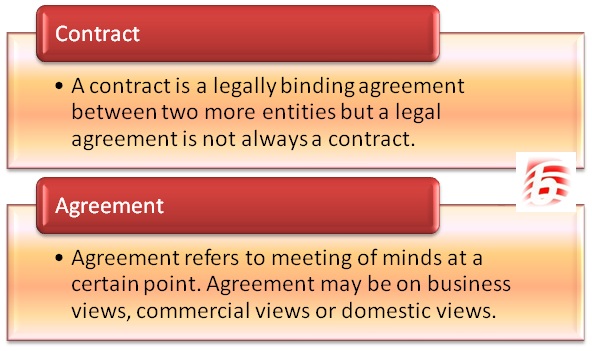Contract vs Agreement
In legal contexts, it is crucial to understand the distinction between a contract and an agreement. A contract represents a legal agreement between two or more entities, enforcing an obligation to perform certain actions or abstain from specific actions. However, not all legal agreements are contracts. While people often think that contracts and agreements are the same, there are significant differences between the two. As we enter into contracts and agreements in various aspects of our lives, it is essential to know the differences between these terms.
What is a Contract?
A contract is a legally binding agreement between two or more entities. However, not all legal agreements are contracts. An agreement becomes a contract when three conditions are met: Offer and Acceptance, the intention to create legal relations, and consideration. If any of these conditions are not met, the contract is not legally binding and cannot be enforced on the other party.
A contract consists of terms and representations. Terms are contextual statements that become binding, while representations are statements that might induce a contract but are not terms of a contract. Contracts can be terminated in four ways: through performance, breach of contract, frustration, and through another contract. Generally, when a contract is terminated by performance, the performance is 100% complete. If a serious term of a contract is breached, the affected party can terminate the contract. When conditions make the contract impossible to perform, the contract is terminated due to frustration. Parties of the contract may enter into another contract with mutual consent and can terminate the previous contract.
What is an Agreement?
An agreement refers to a meeting of minds at a certain point. Agreements can be based on business, commercial, or domestic views. If an agreement is not legally binding, it cannot be enforced by law. Agreements where consent is not genuine are called voidable agreements. An agreement becomes a contract when it is made legally binding and meets the three conditions.
When parties enter into an agreement, they define the terms and conditions of the agreement themselves. In contrast, some specific contracts have terms and conditions implemented by law.
Key Takeaways
- The primary difference between contracts and agreements is the remedies for breach of contract and breach of an agreement differ significantly.
- Contracts become enforceable when the three conditions of a legally binding agreement are met, while agreements can be worked upon when two minds meet at a certain point.
- A gentlemen’s agreement is not enforceable by law, whereas a contract can be enforceable by law, and contracts do not necessarily need to begin with an offer and acceptance.
Contracts come into existence through agreements. If an agreement is not legally binding, it cannot be enforced by law. Contracts and agreements can be of various types. In contracts, there are certain presumptions of the intention to create legal relations. It is presumed that in a domestic contract, there is no intention to create legal relations, while in a business contract, it is highly intended to create legal relations. Agreements, on the other hand, do not have such presumptions. They can be between domestic and business parties as long as they intend to be legally bound.
